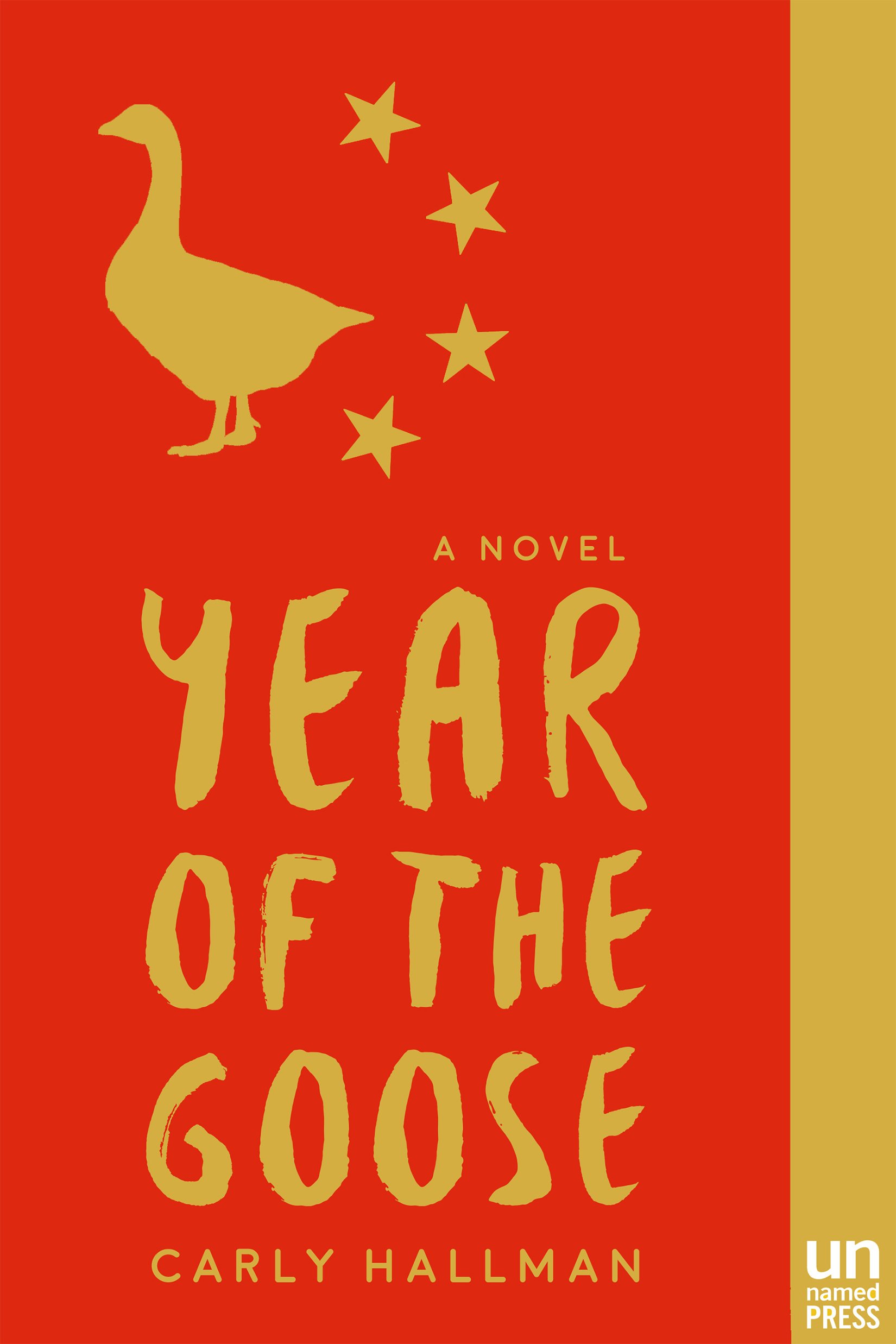Year of the Goose
by Carly J. Hallman
Published: November 23, 2015
ISBN: 9781939419514
Paperback $18.00
by Carly J. Hallman
Published: November 23, 2015
ISBN: 9781939419514
Paperback $18.00
by Carly J. Hallman
Published: November 23, 2015
ISBN: 9781939419514
Paperback $18.00
Year of the Goose
Carly J. Hallman
The era of the tycoon has reached its climax in China, and the lives of a snack food heiress, hair extension magnate, and the nation's most cherished goose are about to collide.
As China's economy booms, so do its corporations, but none are as successful as the Bashful Goose Snack Company. Founded by Papa Hui, the company is a national treasure, as is his beloved pet goose who steadfastly remains at his side. Papa Hui's daughter, Kelly, is desperate to prove herself, and jealous of that wretched goose. Kelly heads up the corporate responsibility department where she builds a fat camp for children.
All of the children are killed in a series of gruesome accidents, but the government views the project as a success— the province is no longer the nation's leader in childhood obesity. With all of the nation's obese children cured of their fatness, albeit by death, Kelly returns to the city where hair tycoon Wang Xilai plucks her extensions from Lulu, the woman with the most lustrous hair in China.
When Papa Hui is brutally murdered, chaos ensues. Wang and Kelly are both alternately accused. His goose is left to his own devices, and certainly does not want to remain loyal to a corpse. Lulu flees the tumultuous hair business and becomes the mistress of a politician, who scandalously remains faithful to his wife. Lulu encounters a turtle, who was once a tibetan monk, and eventually escapes to a hipster idyll, an oasis for millionaires where she lives with three witches and learns their ways.
Unbeknownst to Lulu, this model village for tycoons has two new residents. Wang has descended into madness and is holding Kelly Hui hostage in a small shed. In the absurdist satirical tradition of the great contemporary Chinese author Mo Yan, comes a searing and whimsical portrayal of tycoon culture as CEOs run wild in an oligarchical tabloid-driven society, not unlike our very own.
Praise for Year of the Goose
"Hallman, who is based in Beijing, captures China’s era of the instant tycoon with biting satire."
—Jane Ciabattari, BBC
"Acidic and slapstick, Year of the Goose is a satire as sharp as a gleaming beak or a pair of beady black eyes."
—Leah Dearborn, LitReactor
"Hallman's debut novel is a scathing satire of tycoon culture and political corruption, set in present-day China...As the body count rises, morbid humor abounds."
—Publishers Weekly
"Hallman’s work employs artful paradoxes stacked atop each other like perfect snack cakes, and happens upon some touching realizations about how children don’t choose their own lives. In this insane romp through the author’s imagination, nobody emerges unscathed."
—Heather Scott Partington, Las Vegas Weekly
"Year of the Goose is a completely fresh and original comic novel overflowing with mayhem, sly and mordant humor, blood-thirsty slapstick, corporate malfeasance, hair extentions, Watermelon Wigglers, an enlightened turtle and a malevolent goose. It is an unhinged and utter delight."
—Mark Haskell Smith, author of Raw: A Love Story
"A sharp and funny debut book about China’s tycoon culture, brimming with wild life; fans of Mo Yan will see his spark in Hallman’s fire."
—Amelia Gray, author of Gutshot
"Year of the Goose is outrageous, deranged, and hilarious—a rollicking send up of late Chinese capitalism, it's also, like all great satire, deeply felt and disturbing. Somewhere, between all the laughing and the whimsy, between the vicious goose and the wise turtle, I kept catching glimpses of the hidden horrors, the consequences of our runaway appetites, our steely obsessions. "
—Peter Mountford, author of The Dismal Silence
"It is hard for fiction to match the craziness, energy, contradiction, and exciting implausibility of modern China. Year of the Goose does that and more, with a plot and characters more excitingly implausible than the real-world originals and also much more entertaining. This is an absurdist comedy with some sharp and serious social observations."
—James Fallows, The Atlantic, author of China Airborne
"Year of the Goose is the book that delivers laughs—irreverent, a little bit mean, morbid and happily cutting, before it slyly pulls the laughter out of our throats. Damn. A muffled sob before we know what’s come over us. But just as soon, another sensation: true levity. This absurdist satire is chameleonic. It goes deeper as it becomes lighter."
—Melissa Holbrook Pierson, Electric Literature





